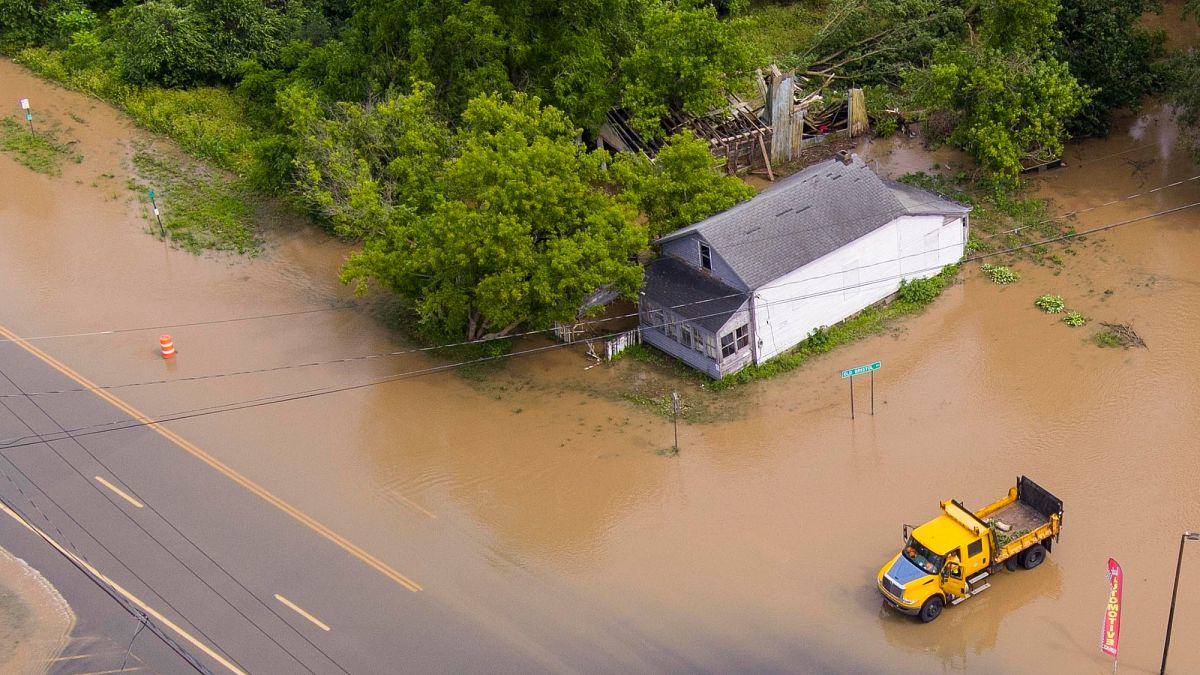

As global weather patterns continue to shift, different regions across the world are experiencing a range of climatic events that highlight the interconnectivity of our global environment. These developments pose challenges but also call upon human resilience and adaptability, with many communities coming together to address the new realities in positive and constructive ways.
In the United States, the Northeast faced heavy rainfall that caught travelers off guard. The region witnessed flash flooding on Monday night, leading to emergency declarations in several states including New York and New Jersey. Despite the disruptions, emergency services have been actively coordinating efforts to mitigate the impact, ensuring people are safe and that assistance is provided to those affected by the sudden deluge.
Across the Atlantic, the focus shifts to the ongoing heatwaves impacting Europe. Researchers are keenly analyzing how rising temperatures might affect European economies, as they foresee potential declines in GDP and labor productivity. This anticipation calls for innovative approaches to empower economies while also considering environmental sustainability. Some European countries are already taking proactive steps to mitigate these impacts, recognizing the importance of adopting both short-term responses and long-term strategies to nurture economic and ecological well-being.
Meanwhile, southern regions, like those in the Gaza Strip, are grappling with intense heat exacerbating ongoing crises. Limited water supply, sanitation challenges, and overcrowded living conditions present significant hurdles. These communities are drawing upon their collective strength and support from international agencies to address these pressing humanitarian needs, and efforts remain focused on ensuring the well-being and safety of all residents.
In Argentina, an unexpected warm air mass drifted south, bringing unseasonal warmth to regions accustomed to winter chills. The cities of Rosario and Buenos Aires experienced temperatures considerably above the seasonal average, a gentle reminder of the significant shifts in global climate patterns. While brief, this warm spell urges local authorities to adapt their infrastructure and emergency protocols in anticipation of both expected and unexpected weather changes.
However, not all regions were met with favorable conditions. The United States’ iconic Grand Canyon experienced a challenging situation as wildfires engulfed the historic lodge on the North Rim. The fires, consuming over 45,000 acres, necessitated the closure of the area for the season. Despite the loss, park authorities, in collaboration with local organizations, are strategizing on restoration and prevention efforts to protect this treasured landmark for future generations.
Such diverse weather events underscore a shared global experience, one that calls for cooperation, innovation, and shared learning. As communities around the world rise to meet these challenges, there is a growing emphasis on adopting sustainable practices and strengthening resiliency. These efforts illustrate the inherent human capacity to adapt and thrive, even amid changing climatic conditions. The path forward, while demanding, is filled with opportunities for positive growth, collaboration, and mutual understanding.
Source: {link}
